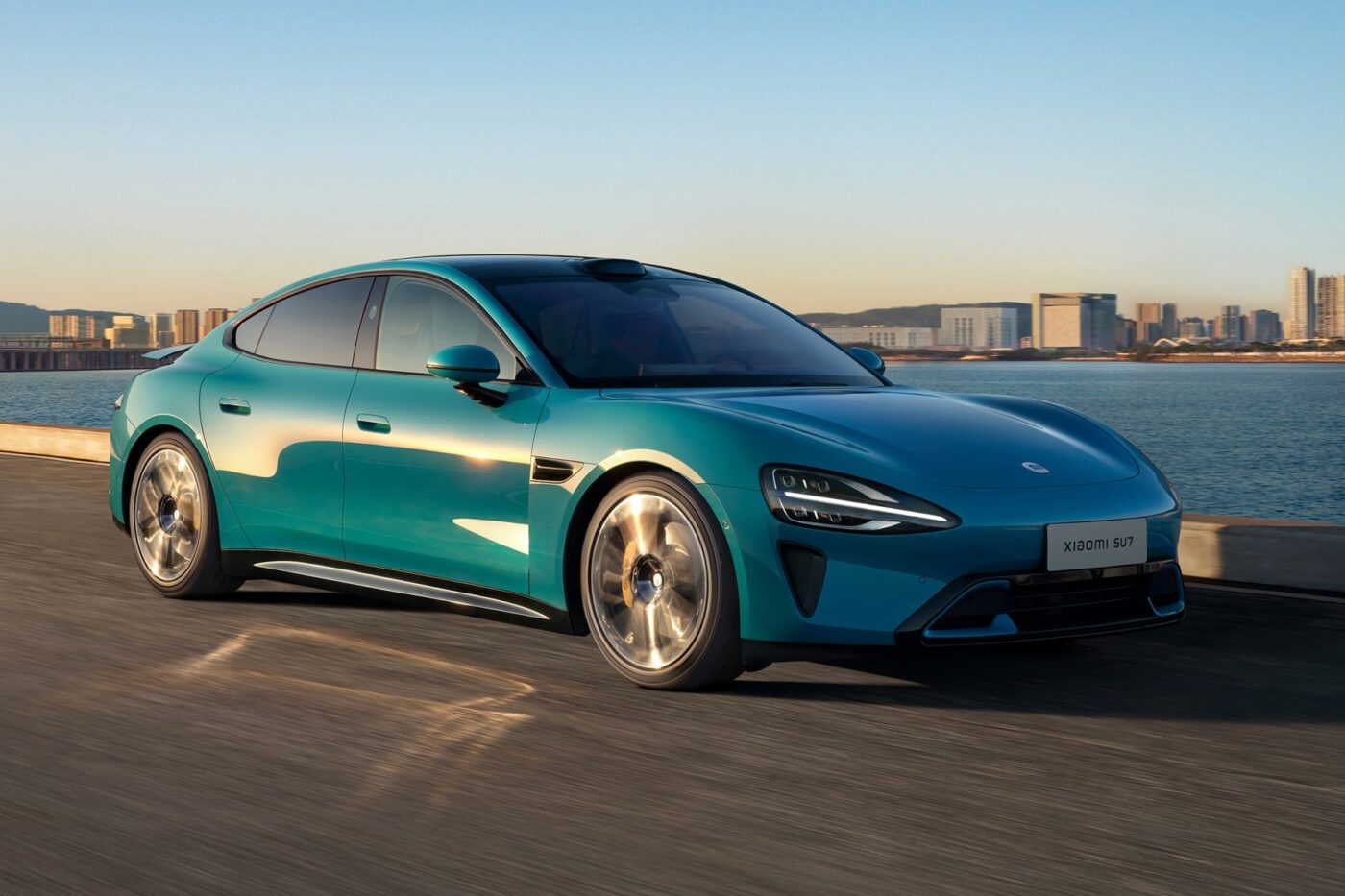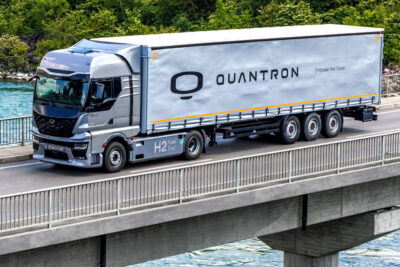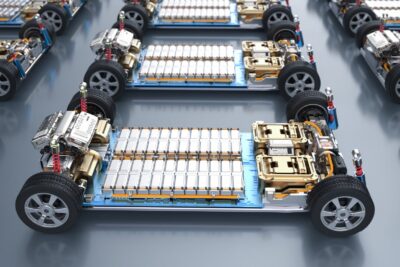Xiaomi’s Q1 EV sales growth slows down compared to 2024
In the original currency, Xiaomi’s electric car business generated sales of 18.1 billion yuan (around 2.2 billion euros) between January and March. This corresponds to an increase of around eleven per cent compared to 16.3 billion yuan in the fourth quarter of 2024, meaning that the segment is growing more slowly than recently: In the third quarter, Xiaomi still reported growth of 71.5 per cent, in the fourth quarter of 52.1 per cent – each compared to the respective previous quarter. Now the increase is “only” eleven per cent. However, the first quarter is always the weakest phase of the year in China, as the Chinese New Year falls during this period, among other things.
As Xiaomi also changed the structure of its business units in its annual report, it is difficult to categorise the operating results for the first quarter. This is because the company changed ‘Smart EV and other innovative business units’ to ‘Smart EV, AI and other innovative business units’ at the turn of the year. Combined in this way, Xiaomi reported sales of 18.6 billion yuan, a gross profit margin of 23.2 per cent and a bottom-line operating loss of 0.5 billion yuan (around 61.3 million euros). However, it is clear that within this grouping, Smart EVs are the dominant unit with a turnover of 18.1 billion yuan. Whether they would be profitable without the link to the AI area remains to be seen.
In 2024 as a whole, sales from Xiaomi’s ‘innovation business’ totalled 32.8 billion yuan (4.17 billion euros), of which 32.1 billion yuan (3.94 billion euros) was generated by the electric car division. As significant sales have only been generated since the start of deliveries in April 2024, the result of almost four billion euros was impressive. 2025 is now starting somewhat less dynamically, however.
In addition to the 18.1 billion yuan Q1 turnover, Xiaomi also reported 75,869 electric cars delivered in the opening quarter. All of these were the SU7 electric sedan, the Group’s debut model. The figure corresponds to an increase of almost nine per cent compared to 69,697 units delivered in the fourth quarter of 2024. According to the company, a total of over 258,000 SU7 series vehicles have been delivered to date.
At the turn of the year, the Chinese electric car newcomer had raised its delivery target for this year from 300,000 to 350,000 electric cars. This means that an average of 87,500 deliveries would be required per quarter. Xiaomi’s Q1 result is therefore clearly below this target, which will need to be ironed out in the coming quarters. Xiaomi is likely to have high hopes for its second model, the YU7, an electric SUV that will celebrate its official launch in China in July and will then be available on the market in three variants.
Incidentally, Xiaomi puts the average sales price of its electric cars in the first quarter at 238,301 yuan per unit, the equivalent of around 29,220 euros. A minimal increase of 1.7 per cent compared to the fourth quarter, which, according to Xiaomi, is partly due to the February launch of the more expensive Xiaomi SU7 Ultra. The vehicles are currently being sold in China via 235 car dealerships in 65 cities (as of 31 March).
How sales develop is probably also linked to the company’s image. Coming from the smartphone manufacturing sector, Xiaomi positioned the SU7 as an emphatically dynamic and powerful smart car with favourable prices of less than 30,000 euros in some cases. However, there were several reports on social media of accidents involving the SU7 after a brake failure because the braking system was apparently not designed for the power of the drive. An accident involving an SU7 in which the semi-autonomous driving system was apparently activated made even bigger waves in April this year. According to rumours, Xiaomi subsequently postponed the launch event for the YU7 planned for the motor show in Shanghai. However, the market launch had already been announced for June or July 2025.
And finally, let’s take a look at Xiaomi as a company as a whole: the Group generated 111 billion yuan in the first quarter. The smartphone and AIoT business accounted for 83 per cent of this, while the electric car business, along with AI and other business areas, generated 17 per cent of this turnover.





0 Comments